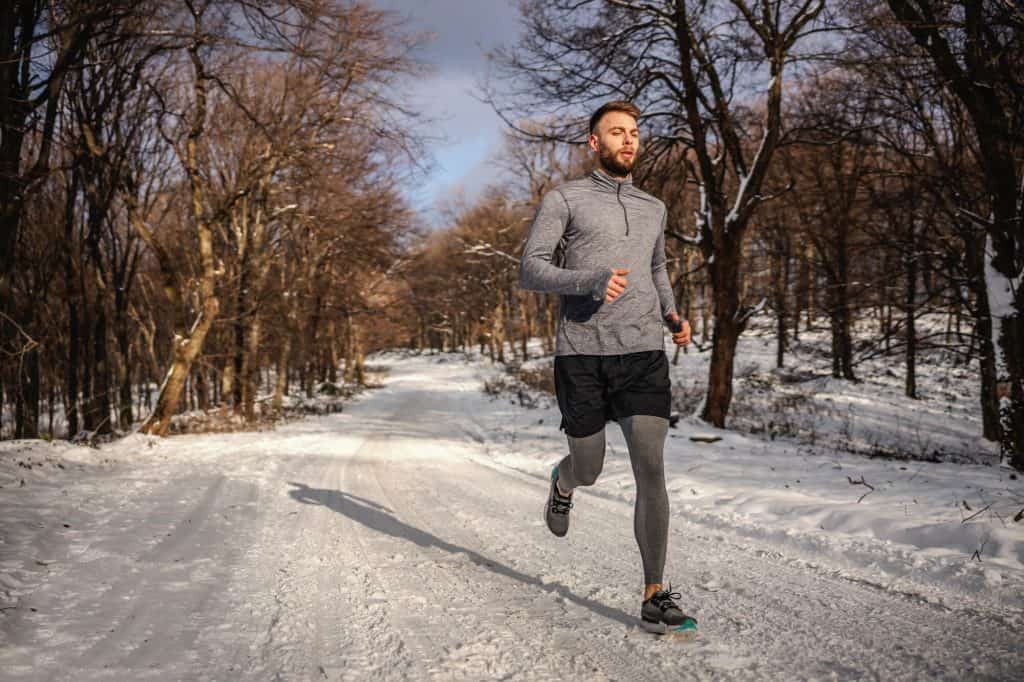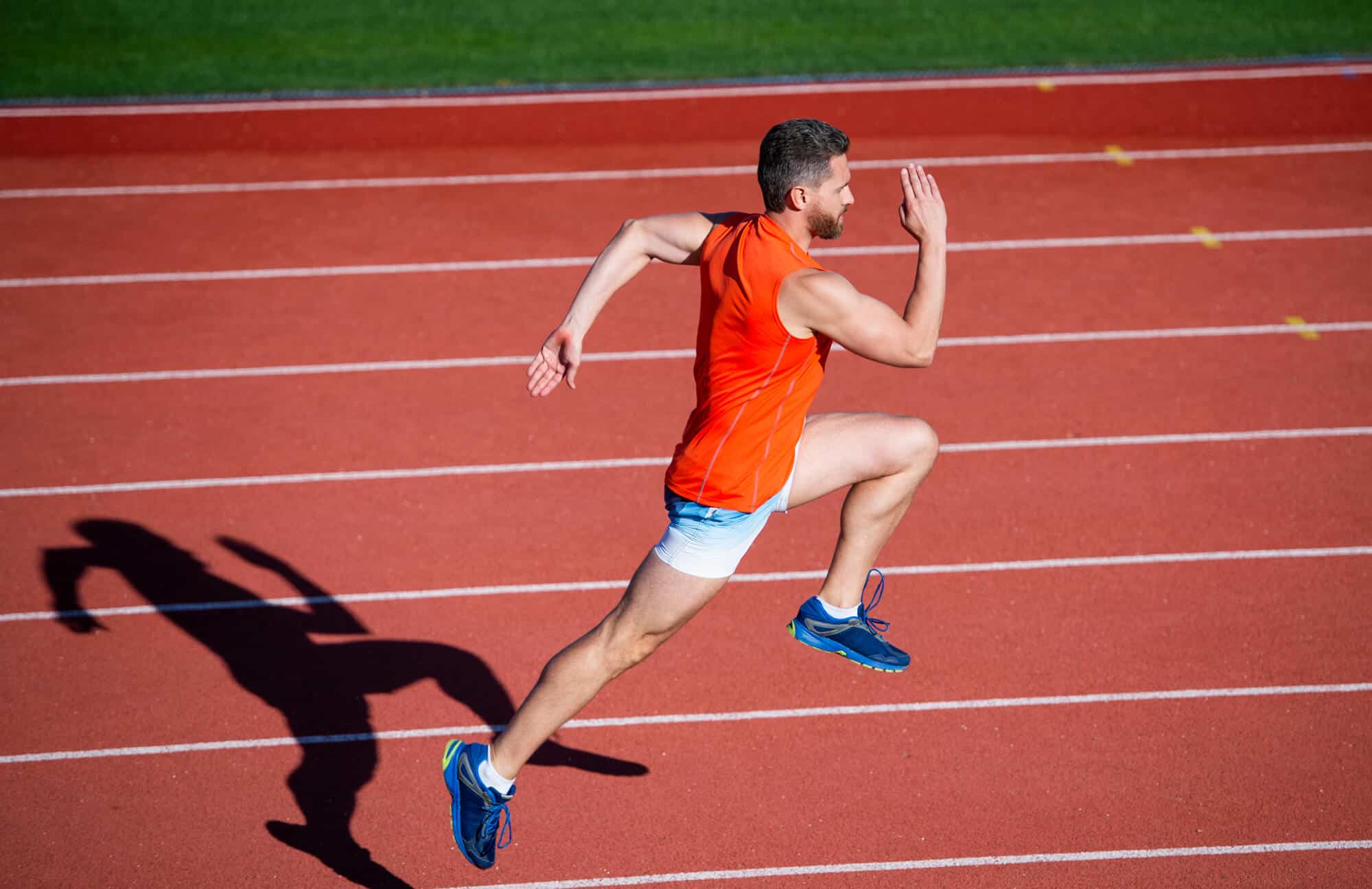Have you ever seen someone running on a cold morning and wondered?
People who love running can’t imagine their lives without it. Even if you practice other sports, there’s something special about running that makes it one of the most fun activities.
But what is a good running pace? How can you make sure that you’re making the best of it?
Your running pace depends on several factors, including your age, fitness level, overall health, and genetics.
Total beginners can run a mile in 15 minutes, or even more, depending on the previous factors. It would be good to finish one mile in 9 or 10 minutes if you’re somehow in shape. Competitive athletes will be able to finish a mile in 3 to 4 minutes.
Let’s dive deeper into the adequate running pace and how to improve it.
What is a Good Running Pace?
Running has lots of benefits as it affects your body and mind. For example, runners are less prone to cardiovascular issues and have stronger muscles. Running can also increase bone density.
Determining your speed or pace as a runner is calculated based on a mathematical formula. You calculate the distance you run and then divide it by the time it took to travel it.
The same person can have different running paces on different days of the week depending on their level of fatigue or mental state on that particular day. So there are actually a lot of internal and external factors that affect your pace as a runner.
Overall Health
Running is an excellent way to get fit, but if you have poor overall health, your pace might be too slow. As a matter of fact, running might not be the right exercise for you after all.
If you have weak core muscles, had a hip replacement surgery, or suffer from arthritis, you might not be eligible for running. Walking will be better because it puts less pressure on your lower joints. In addition, running can make you suffer from a painful injury that takes months to resolve.
Genetics
Your genetics affect your running pace because they determine your body fat, muscle mass, and bone strength. Of course, following a healthy lifestyle and exercising will change these factors, but what is a good running pace? some people are born runners and can achieve a faster running pace when they follow the same training program that others follow.
Nutrition

Believe it or not, the food you eat can affect your running pace. Nutrient-dense, high-nutritional, healthy food will provide your body with the needed energy to answer the question what is a good running pace.
Unhealthy food that is packed with sugar won’t provide you with long-lasting energy. You might have a burst that prompts you to run fast and then suffer from sudden fatigue. Junk food has high levels of fats and adds to your weight, eventually affecting your pace.
Before going for a run, you need a healthy snack to fuel your body, especially if you’re a distance runner. The meal should be high in carbs and low on fats and fibers that typically take more time to digest.
A white toast with some cottage cheese and deli turkey will be a good choice. You can also grab some blueberries, a banana, and Greek yogurt as your pre-run meal.
Sleep
Your body needs to rest after running to restore its energy levels. If you don’t sleep well, you’ll wake up with a headache and body aches that prevent you from running the way you should.
Runners and other endurance athletes are prone to insomnia, especially when their exercise routine is too intense. This is why it’s important to give your body a break if you feel that you’re overtraining.
Posture
Maintaining a good posture while you’re running will reduce muscle fatigue and eventually help you improve your running pace. You need to keep your back straight and hold your head high while relaxing your shoulders.
As you run, you need to bend your elbows at a 90-degree angle and swing your arms freely. You don’t need to lift your knees up too high to minimize shock and impact.
Clothing and Shoes

What you’re wearing for a run can highly impact your pace and overall performance. Athletic shoes are divided based on the sport they’re used for, so it’s important to pick a good pair of running shoes, and not tennis shoes or dance shoes before you go for a run.
These sneakers have special cushioning to reduce the impact on your knees and hips the more you run. So, they protect you from injury and also affect your pace, allowing you to go faster. The shoes should also be comfortable and properly padded to prevent painful blisters.
Choosing the right socks is equally important. Your socks should be designed to absorb sweat and keep your feet dry, as this will protect you from annoying skin infections.
There are several running outfits on the market, but make sure that the outfit you pick is designed to keep you dry, well-ventilated, and lightly insulated. Your body will get hotter as you run, so you don’t need to wear a heavy jacket even if it’s cold outside. However, you might have to go for a windproof, waterproof lightweight jacket if you think it will rain.
Your clothes shouldn’t be too tight as they might feel restrictive, nor too wide as they might get entangled with an object while you’re running. Pants, tights, and shorts work for most people, and you can top them with a comfortable t-shirt or vest.
Most women prefer to wear supportive bras while running. These are designed to minimize breast movement that leads to discomfort or even pain during long runs.
Steps
The key to running faster isn’t just about taking longer steps but also faster ones. You need to extend your foot to reach the ground closer to you and not just aim to cover more ground when you run. As you become more fit, your muscles will be able to extend a little bit more, and your steps will become wider.
Weather

Running in extremely hot or cold weather can affect your performance, especially if you’re not a seasoned runner. It takes quite some time before your body can tolerate the humidity and dehydration, so you’ll get worse before you get better.
Environment
What is a good running pace? Your running pace is definitely affected by the trail you’re exploring. For example, a steep hill provides more resistance, so you’re likely to take more time to cover one mile if you’re running up a hill than running down one when gravity is working for you.
Nevertheless, you can train your body to go faster even if you are running on a challenging trail. It’s all about changing your knee height while you’re running and focusing on which part of your foot to land on.
How Can I Improve My Running Pace?
Improving your running pace is doable by following some easy tips.
- Practice interval training where you go jogging at a slower speed for about 10 minutes and then run as fast as you can between 2 and 5 minutes. After that, you should start jogging again to help your body recover. This technique helps with increasing your muscle endurance and will allow you to reach your desired running pace in a few weeks.
- Experiment with tempo training as you actually go faster than your desired running pace. Keep this pace for a few minutes, followed by a longer interval of comfortable jogging.
- If you’re planning to run on a hill, maintain your tempo as you go up and then jog down.
- Work on increasing the number of your steps per minute using a pedometer.
Final Thoughts
Several internal and external factors affect your running pace. Nevertheless, you can always improve your pace with extra practice and listening to your body.
Don’t over-exercise, as it might backfire and affect your overall health. Instead, work slowly towards your goal and give your body time to adjust.

